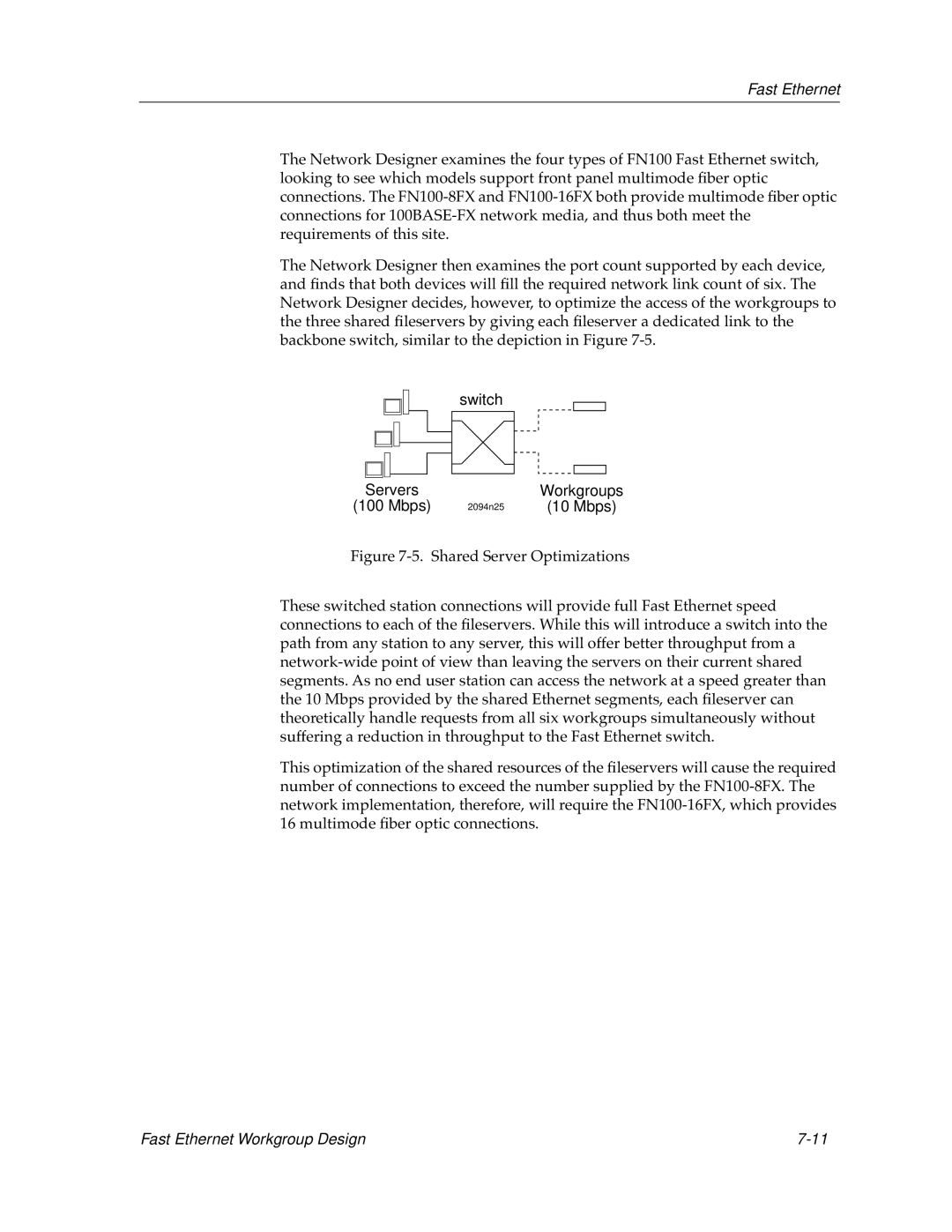
Fast Ethernet
The Network Designer examines the four types of FN100 Fast Ethernet switch, looking to see which models support front panel multimode fiber optic connections. The
The Network Designer then examines the port count supported by each device, and finds that both devices will fill the required network link count of six. The Network Designer decides, however, to optimize the access of the workgroups to the three shared fileservers by giving each fileserver a dedicated link to the backbone switch, similar to the depiction in Figure
switch |
Servers |
| Workgroups |
(100 Mbps) | 2094n25 | (10 Mbps) |
Figure 7-5. Shared Server Optimizations
These switched station connections will provide full Fast Ethernet speed connections to each of the fileservers. While this will introduce a switch into the path from any station to any server, this will offer better throughput from a network-wide point of view than leaving the servers on their current shared segments. As no end user station can access the network at a speed greater than the 10 Mbps provided by the shared Ethernet segments, each fileserver can theoretically handle requests from all six workgroups simultaneously without suffering a reduction in throughput to the Fast Ethernet switch.
This optimization of the shared resources of the fileservers will cause the required number of connections to exceed the number supplied by the FN100-8FX. The network implementation, therefore, will require the FN100-16FX, which provides 16 multimode fiber optic connections.
Fast Ethernet Workgroup Design |
